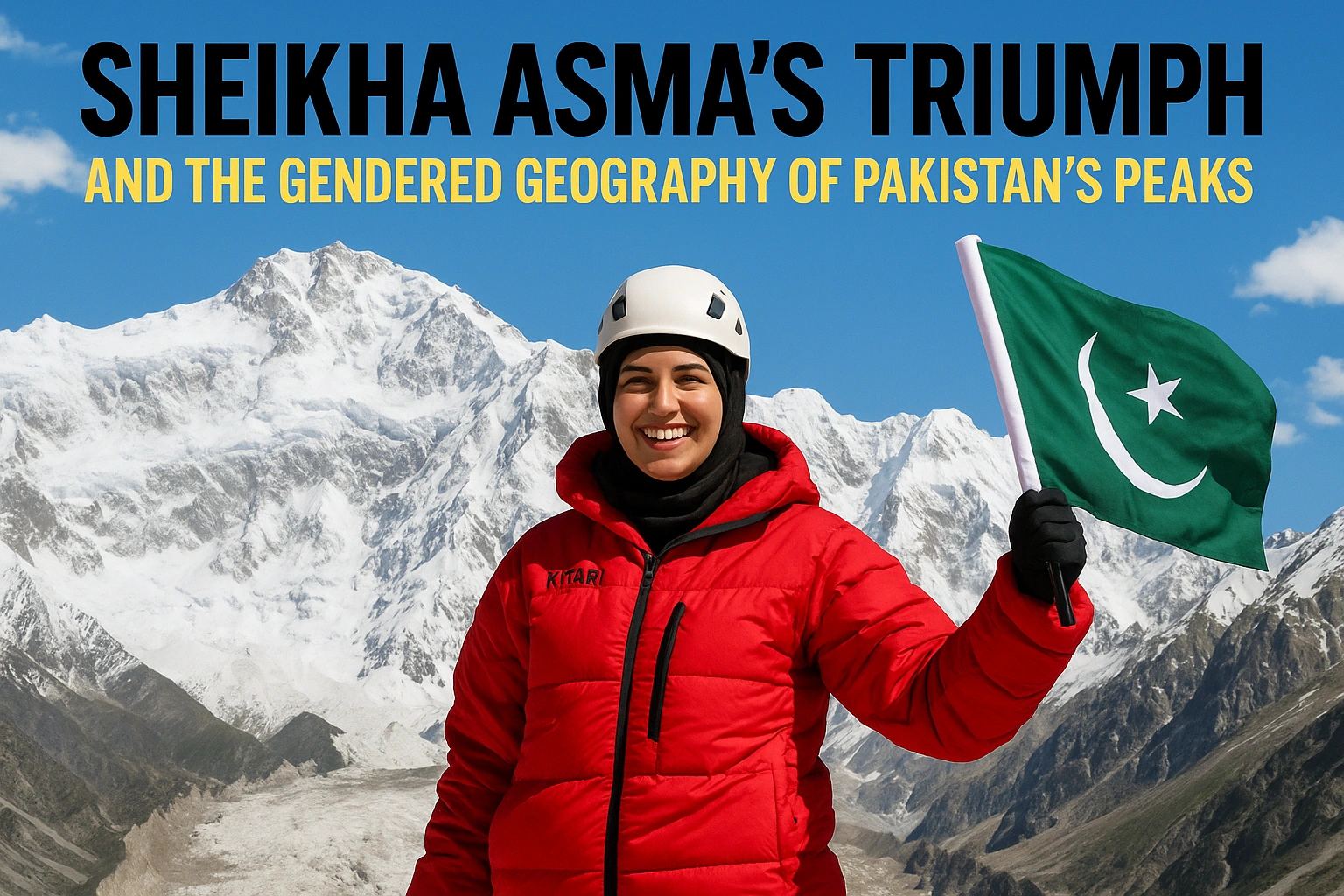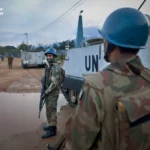Rethinking Mountains: Male Domination Zones to Stages of Liberation
The news of the successful ascent of Nanga Parbat by Qatari royal Sheikha Asma Al Thani is not only prone to physical mountaineering, but it is also a metamorphosis of the cultural and symbolic topography of the mountains in Pakistan. Nanga Parbat, also referred to as the killer mountain, is one of the most dangerous mountains in the world. Even more so the terrain of male adventurers and militarized discourse. Here, it can be noted that the achievement of Sheikha Asma and her eventual naming as the mountain tourism ambassador of Pakistan show that mountaineering can potentially lead to gender empowerment, cross-border relations, and cultural diplomacy.
Moreover, the welcome she was given in Pakistan (official welcome at Prime Minister Office in Islamabad) demonstrates a very good gesture unlike traditional diplomacy and focusing on tales about people. Pakistan has developed its national identity through celebrating a global female peak achiever who is also an Arab. The idea of a Muslim woman beating one of the deadliest mountains in the world is cross-culturally sound, disrupting the view of the orientalism as well as traditions and patriarchal restrictions.
Besides that, this symbolic action potentially has tremendous cultural value in an age of ever-growing global connections. Mountaineering, that was mostly on the sidelines of global discussions, is now a potent mechanism of soft diplomacy. By celebrating the success of Sheikha Asma, Pakistan makes use of the symbolic potential of its landscape not only topographically but also as a metaphoric point of communication, belonging and vision.
Furthermore, Sheikha Asma does not start to break limits. As a member of Qatari royal family, her involvement in extreme sports is an overturn of expectations and motivates other women to become more active in adventure and outdoor activities. Her elevation to the status of brand ambassador of the mountains of Pakistan further extends this message throughout the Muslim world and even beyond, since the message of female empowerment through sport starts being transmitted as a pan-Islamic progressive project.
Building Bridges: Local Communities, Environmental Diplomacy and Regional Relations
It is just as well, however, that the event also highlights the backstage communities, which make such feats possible: local porters, guides, and high-altitude support crews of the Gilgit-Baltistan region. Decades ago, there were people who typically had an economically disadvantaged background and who risk their lives to assist foreign climbers. The uphill struggle, with the national scrutiny, that Sheikha Asma went through has illuminated their irreplaceable position with a flame which is seldom seen. The increased sophistication on the part of diplomacy would not merely comprise recognizing elite mountaineers. In fact, but also formalize awarding the local mountain people to whom the Pakistani tradition of mountaineering owes its existence.
In this respect, Pakistan’s support system of international climbers has always been one of the strongest of any nation in South Asia. The country has gained credibility in the international mountaineering field, ranging from logistical organizing to emergency helicopter flights by Pakistan Army Aviation corpus. Such initiatives are not, however, purely functional but they serve as the basis of establishing international assurance and credibility. With the state-level acknowledgment of such high-altitude sports representatives as Sheikha Asma, Pakistan becomes not only a geographic hub of high-altitude adventure but a reliable pillar of the worldwide climbing community.
Moreover, there is yet another important aspect of environmental diplomacy in Sheikha Asma’s appointment. The most vulnerable ecological zone is the high altitude lands such as the vicinity of Nanga Parbat. As mountaineering activity rises, there is therefore the duty to maintain the natural resources, waste management, and sustainability training activities for the climbers. In choosing a high-profile honored person like Sheikha Asma, Pakistan raises the degree of its credibility in environmental caring as well as influencing responsible travel.
Lastly, such symbolic gesture also echoes in the regional diplomacy of Pakistan. Knowing a Qatari royalite, this nation demonstrates the renewal of its contacts with the countries of the Gulf Cooperation Council (GCC), where personal diplomacy contributes to the strengthening of relations at the state level. Knowing that climate change, security and tourism are becoming key factors in the regional discourse, such appointments have a new strategic value.
Overall, the climbing of Nanga Parbat by Sheikha Asma Al Thani and her acknowledgment by Pakistani government is one of the instances of gender-geography-diplomacy collisions. By doing so, Pakistan is welcoming the world not only to look at its mountains as one of the natural wonders of the world, but also as a place of strength, empowered women, and intercultural integrity. The country is still ascending slowly towards becoming a more inclusive and integrated nation in terms of global correlations. However, such occasions are the milestones of this climb.








